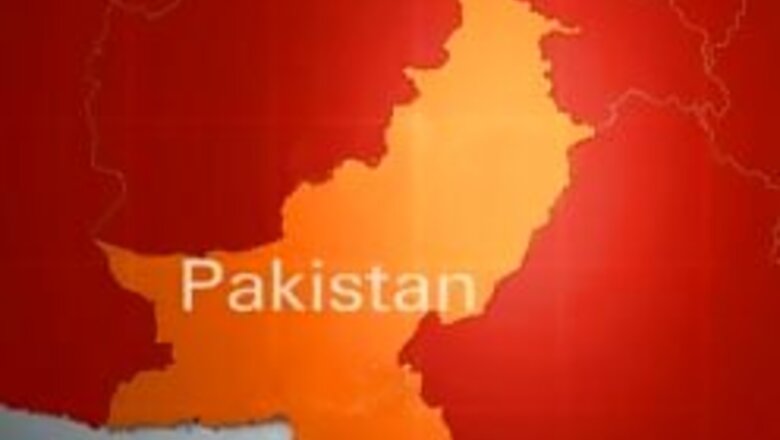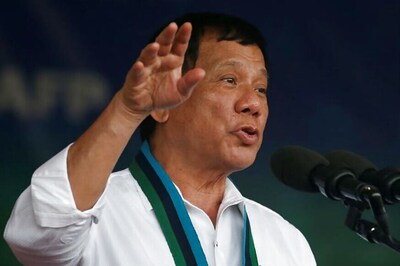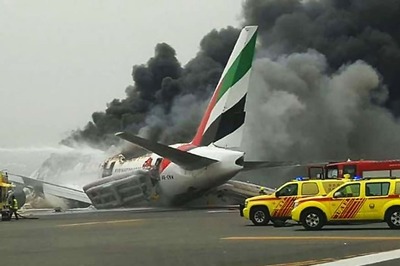
views
H R Venkatesh: Hello and welcome to the News Junkie podcast. Today we're going to be talking about what it is like for a foreign national to report from in Pakistan. After all, there are going to be hundreds and hundreds of journalists with elections slated for the 18th of February. And to talk about it is CNN-IBN's Deputy foreign editor Suhasini Haidar who is going to be there. Thanks for joining me.
Suhasini Haidar: Thanks very much Venkatesh for having me on.
H R Venkatesh: Right, tell me Suhasini is this going to be your third, fourth trip to Pakistan as a reporter?
Suhasini Haidar: Actually, it's probably closer to my tenth trip as a reporter, I actually had the privilege I should say, of having been there when the historic 1997 elections happened in Pakistan [Nawaz Sharif elected PM for 2nd time] and I've been there ever since on all the big stories.
H R Venkatesh: You were there in the days following Benazir Bhutto's assassination, was that the most difficult time for you as a reporter in Pakistan?
Suhasini Haidar: I think it was. Simply because as a reporter you expect to be able to see your politician to criticise and it was certainly a shock to know that Pakistan would no longer have Benazir Bhutto. Even the elections that we're going to cover now are frankly going to be a pale shadow of what those elections could have meant to the country, had Benazir been alive.
H R Venkatesh: We'll talk about the elections later. But first, you know for the benefit of those who don't know, what is it like to be a reporter in Pakistan, especially if you're an Indian, can you pretty much go and report on any story, go to any city, town, village that you'd want to?
Suhasini Haidar: Absolutely not Venkatesh. It's apparently a reciprocal thing, but basically Indian reporters and foreign reporters aren't allowed to just travel freely in Pakistan. You're given visas for specific cities that you can go cover. And even within those cities, unless you've had prior permission, you're not supposed to head for military areas or cantonment areas, so large parts of your story might be out of bounds for you. In terms of what it's like to cover Pakistan as an Indian, I can only say, one gets a huge welcome as an Indian. It's not just us as journalist, it's people who've gone to watch cricket matches, people who've just gone for holidays, who've noticed what sort of a reception we get.
PAGE_BREAK
I'll give you an example - in Larkana [Benazir Bhutto's hometown] this time, we landed literally with our bags but not much else, no idea where we'd stay just a few days after Benazir's assassination, just as her funeral had ended. And there were not just thousands, there were lakhs of people who'd come from outside Larkana. And we couldn't find a place to stay. And eventually, it was a local politician who we'd never met before, who put us up in his home. He had five daughters, [he] let me stay in one of the daughters' rooms. So people are very, very friendly. In a sense it is as easy in Pakistan to travel around the countryside, perhaps as it is in India.
H R Venkatesh: Alright, President Musharraf has promised free and fair elections. Are we going to get free and fair elections in Pakistan this time?
Suhasini Haidar: Well I think the big factor in these elections in terms of whether they are free or fair is the fear factor. However free a government might want an election to be when people who have to go out and vote live in under such an atmosphere of fear, it seems impossible that the verdict of the people will ever actually be heard at the end of this. Apart from that there are many fears, political parties are already talking about very systematic rigging, they're talking about the fact that candidates from each party, from the party that is closest to the government at present have in fact got their nexus very tightly in with election commissions officials as well as district commission officials, that's what people are the most afraid of, that the rigging of the elections in a sense have happened before the elections as well. People are going to be afraid of terror attacks and are going to be afraid of these very powerful local dons.
H R Venkatesh: I was coming to that. It can be dangerous can't it? I'm not just talking of from a reporter's perspective, but also for people who want to go out there in droves and vote in their candidate.
Suhasini Haidar: Absolutely Venkatesh. It is going to be a very, very dangerous and many predict unfortunately a very bloody election. There is the fear of terror attacks. There are the sort of attacks we've seen already just a few days ago, like in Charsadda [North West Frontier Province] where 25 people were killed. The sort of attack on Bhutto where politicians in particular are being targetted. Also just the fear that any situation can go out of control. It's still a nation quite torn by Benazir Bhutto's death, still a nation quite angry about it. And many fear all kinds of violence that could really break out, ahead of elections. Clashes between workers and what I should add over here when you talk about voters coming out in droves. There is a bit of an apathy that none of the candidates that stand for the elections on the 18th have the kind of mass following. Let's remember that all the key players in Pakistan today, whether it's Musharraf, whether it's Zardari, whether it's Nawaz Sharif and whether it's even Justice Iftikar Choudhry, none of them are actually standing for elections.
H R Venkatesh: Opinion polls, just the last couple of questions, opinion polls say that the Pakistan Peoples Party [PPP] has the edge this time, is that the feeling that you get as well?
Suhasini Haidar: I think that would correct. Sindh is of course a very large state and has traditionally voted for the PPP. But Benazir's party has in particular got a lot of sympathy from across the nation. There is also a survey now that says that people are losing their faith in the extremist parties. Parties like the MMA [Muttahida Majlis-e-Amal] are losing ground in the areas of NWFP [North West Frontier Province] and Balochistan that they've really held for a long time. Is that advantage going to go to the PPP? Many think it will, simply because of the personality of Benazir Bhutto that still very much hangs over the elections and that's what the PPP is putting all its faith in.
H R Venkatesh: Alright Suhasini, hope you have a great time reporting in Pakistan.
Suhasini Haidar: Alright, stay safe, thanks!




















Comments
0 comment